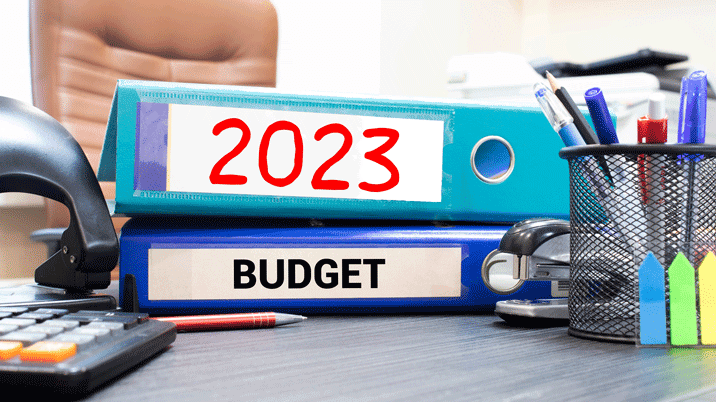Finance minister Nirmala Sitharaman proposed a reduction in the basic customs duty for non-lithium and ion cell batteries utilized in electric vehicles, as part of the government's efforts to promote ‘green growth’ in the 2023 Budget.
The import of capital goods and machinery needed for lithium and ion cells used in EV batteries will now be exempt from customs duty, which is expected to make EVs more affordable. The minister highlighted that this change will result in slight modifications to custom duties, cesses, and surcharges for items like automobiles and motorcycles.
“I propose to provide relief on customs duty on import of certain parts & inputs like camera lens & continue the concessional duty on lithium-ion cells for batteries for another year," she said.
The government will be allocating Rs 35,000 crore as priority capital towards energy transition and net zero goals in a bid to boost energy security. The minister also stated it is supporting battery energy storage systems with a capacity of 4,000 MWh (megawatt hour) with viability gap funding.
Rishabh Jain, senior programme lead at Council on Energy, Environment and Water (CEEW) said, “our analysis suggests that the key equipment for battery cell manufacturing is imported and their share is between 65-75% of the overall infrastructure costs. Going forward, the government must aim to acquire critical minerals from overseas and build the capability to process them.”
Jain added that the VGF (viability gap funding) support should however, be leveraged to increase understanding of the technology and application and should not be considered as a continuous tool for support. “Further, the exemption of customs duty for capital goods and machinery for lithium-ion battery manufacturing will reduce the final prices of batteries and make electric vehicles more affordable for consumers.”
The reduction in taxes seems to have received a positive reaction from the EV ecosystem.
Pritesh Mahajan, co-founder and chief executive, Revamp Moto said the reduction in custom duty on lithium-ion cells will help in incentivising the product cost to end consumers, resulting in boosting the sales of EVs. This will be further catalysed by the government’s initiative of a strict scrapping policy.
Varun Goenka, co-founder and CEO of Chargeup had a similarly positive view.
“One of the most impactful decisions this time is the extension of customs duty exemption for the import of capital goods and machinery required to produce lithium-ion batteries for EVs in India. This move will reduce the initial capital investment needs of the battery manufacturers and is also likely to make the batteries cheaper as there will be a larger manufacturing base for them.”
Goenka noted that by reducing 39,000 compliances, the ease of doing business will be improved in the near term.
An extension of duty concessions on the import of lithium-ion cells for EV batteries has also been granted for an additional year. Additionally, the basic customs duty exemption on raw materials necessary for the production of nickel cathodes utilized in these batteries has been continued."
The 2023 Budget has emphasized sustainability with the launch of a Rs 2,200 crore Aatmanirbhar clean plan program.
Speaking to VCCircle, Ankit Kedia, the founder of Capital A, an early-stage VC firm focusing on EV and climate said, “This is an indication of the government's commitment to reducing India's estimated total carbon emissions by 1 billion tonnes by the end of the decade.”
“The government's decision to exempt excise duty on GST-paid compressed biogas containment will give a boost to the green mobility sector. Also, custom duty exemption on the import of lithium-ion batteries will continue to focus on the transition to electric mobility. Overall, this Budget will help India achieve its commitment to a low-carbon economy while achieving economic growth at the same time. It is expected that these initiatives will help create employment opportunities as well as attract foreign investment into India's economy,” said Kedia.
The finance minister said the governments are looking to achieve net-zero carbon emissions by 2070 and reduce the country’s carbon intensity by 45% by 2030.
The government intends to establish a comprehensive sustainable development system encompassing initiatives like electric vehicles, waste management systems, water conservation projects, and solar power plants. Additionally, the budget allocates increased funding for research and development of clean technology solutions, including the establishment of green hydrogen production facilities.







